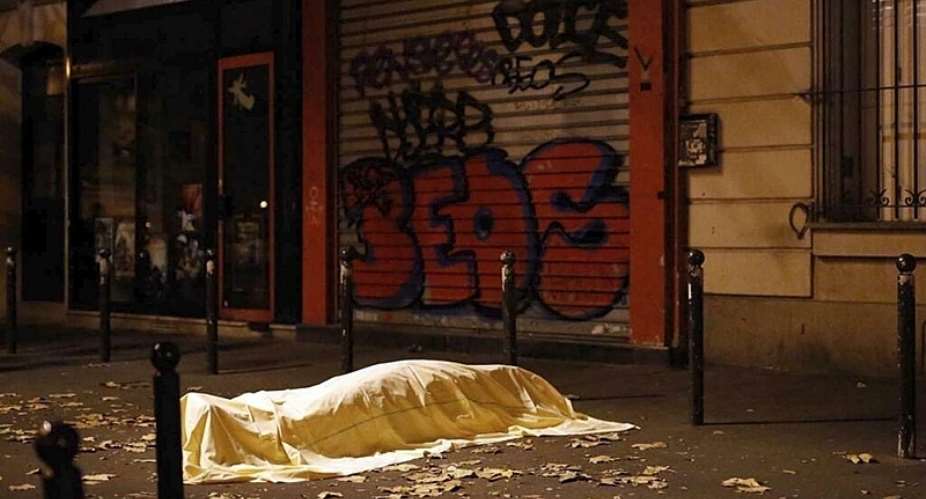The Paris special criminal court, where 20 men are being tried for their alleged participation in the November 2015 terrorist attacks in the French capital, this week heard evidence from an Austrian policeman in person, and from Belgian policemen via videolink. There was also a sudden decline in the population of the box holding the accused.
This will be remembered as the week of the prisoners' revolt.
On Thursday, four of the accused refused to take their places in court. On Friday, a fifth man joined the rebellion. Given that each prisoner is accompanied at all times by two police officers, the normally crowded glass security enclosure housing the suspects and their minders suddenly seemed virtually empty.
The five men have informed the tribunal that they are refusing to appear in protest against a decision to allow Belgian police investigators to testify anonymously from Brussels.
The law is clear.
Prisoners can be forced to attend
Under French penal procedure, the presiding judge can either have the prisoners brought before the court "using whatever force is necessary", or he can continue in their absence.
On Thursday and Friday, court president Jean-Louis Périès took the soft option and allowed the five rebels to sit out the day in their holding cells.
Given Périès' determination to ensure that this trial is an example of dignified debate, opposed in every way to the violence of the attacks which cost 131 people their lives, he was never going to call for the use of force.
The procedure also requires that the absentees listen to a reading of a full report on the day's hearing before they return to the various prisons in the Paris region where they spend the night.
From German to French to Urdu
On Tuesday, the court heard evidence from an Austrian investigator who interviewed two of the accused following their arrest in Salzburg in the wake of the Paris massacres.
The five-hour testimony in German was translated into French for the court, and then into Urdu for Muhammed Usman, one of the Salzburg arrestees and a native of Pakistan. The process was laborious.
Then it was the turn of the Belgians. Ten police officers from Brussels are due to testify over the next two weeks on the criminal careers and arrests of the known terrorists and suspects based in Belgium before the Paris attacks.
The Belgian Attorney General has refused to allow the police witnesses to appear in person, claiming that their identities must be concealed for security reasons.
Brussels on the defensive
The problem is that there has been criticism in France, in the media and from several associations representing survivors and bereaved families, of the alleged failures of the Belgian police to investigate key actors in the Paris killings. Brussels is clearly on the defensive.
Several of the lawyers at the Paris trial this week accused some Belgian witnesses of refusing to cooperate or of being incompetent to answer crucial questions. The exchanges have frequently been glacial, to say the least.
The testimony from Brussels is being supervised by two Belgian magistrates who sit with each police witness. There are fears in Paris that the evidence is being censored.
The trial continues.





 We’ll protect state wealth from opaque deals – Prof Jane Naana
We’ll protect state wealth from opaque deals – Prof Jane Naana
 Mauritania president says running for second term in June polls
Mauritania president says running for second term in June polls
 I won't ever say I was a mere driver’s mate' — Prof. Opoku-Agyemang
I won't ever say I was a mere driver’s mate' — Prof. Opoku-Agyemang
 2024 polls: 'EC struggling to defend credibility'— Prof. Opoku-Agyemang
2024 polls: 'EC struggling to defend credibility'— Prof. Opoku-Agyemang
 Akufo-Addo gov't's 'greed, unbridled arrogance, unrestrained impunity, sheer dis...
Akufo-Addo gov't's 'greed, unbridled arrogance, unrestrained impunity, sheer dis...
 Election 2024: Ghana needs an urgent reset, a leadership that is inspiring – Ma...
Election 2024: Ghana needs an urgent reset, a leadership that is inspiring – Ma...
 Partner NDC to rollout a future of limitless prospects – Prof Jane Naana Opoku-A...
Partner NDC to rollout a future of limitless prospects – Prof Jane Naana Opoku-A...
 NPP will remain in gov’t till Jesus comes — Diana Asamoah
NPP will remain in gov’t till Jesus comes — Diana Asamoah
 Sunyani Technical University demands apology from former SRC president over sex-...
Sunyani Technical University demands apology from former SRC president over sex-...
 'Dumsor' was resolved by Mahama but ‘incompetent' Akufo-Addo has destroyed the g...
'Dumsor' was resolved by Mahama but ‘incompetent' Akufo-Addo has destroyed the g...
